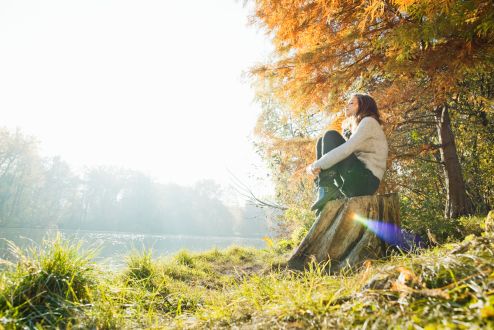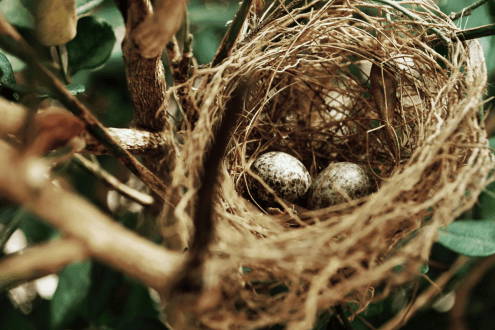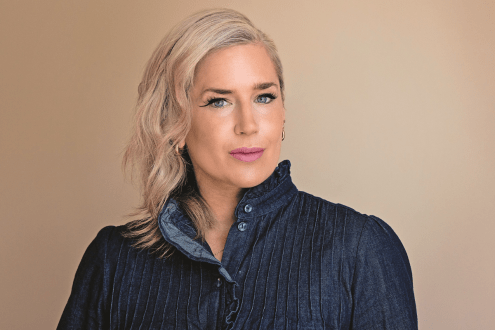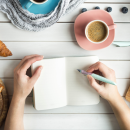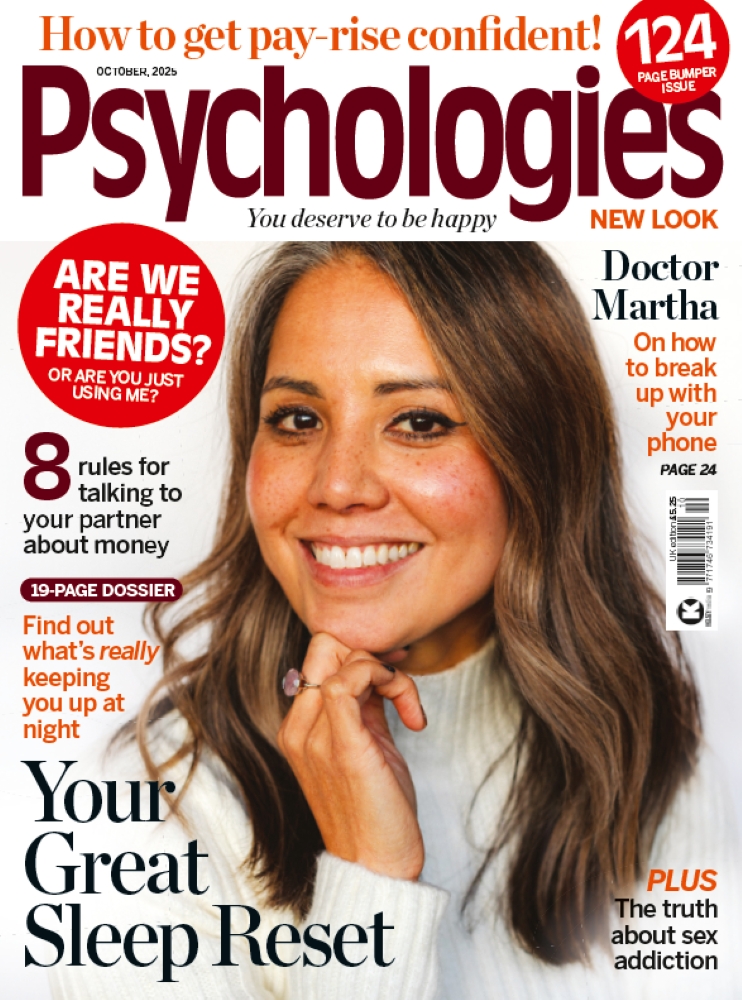How to build self-belief every day
From being body confident to saying what you mean with conviction, Heidi Scrimgeour explores ways to foster a deeper sense of self-assurance…
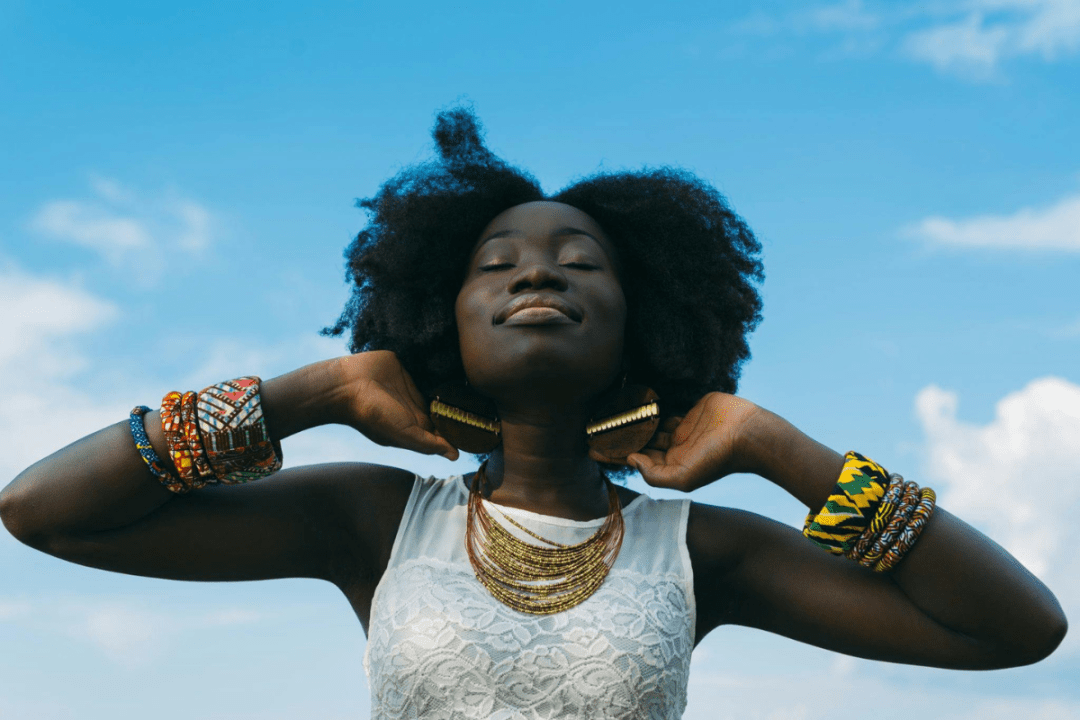
From being body confident to saying what you mean with conviction, Heidi Scrimgeour explores ways to foster a deeper sense of self-assurance and self-belief…
Imagine, for a moment, that you’re sitting on a plane bound for your summer holiday destination, when an emergency arises. The pilot has been taken ill and – since you’re seated in the front row – the cabin crew needs you to try to land the plane.
According to a mixture of urban myth and a YouGov poll, many men feel confident that they could safely land a plane if called upon to do so in such circumstances. Most women, however, are confident of just one thing: that they definitely could not land the plane, even if their lives depended on it. Who knows whether that’s true, but it’s certainly a powerful illustration of what confidence boils down to: a state of mind.
The men who reckon they could pull off landing a plane may have a misguided sense of confidence, of course – landing a commercial jet is purportedly much more challenging than most men seem to believe. But, equally, the women who doubt their piloting skills might well be underestimating themselves.
My point? You don’t always have to be skilled or even experienced at something – such as landing planes – to have confidence in your capacity to do a good job if circumstances required. When we reframe confidence like this – as a state of mind that we can actively adopt and cultivate – it becomes possible to imagine a scenario where we might consider ourselves capable of landing a plane.
Just imagine if we believed in ourselves to the extent that the average “I-could-probably-land-a-plane” man believes in himself. Consider the ripple effect and repercussions that kind of confidence would have in our relationships, in our careers, and on our general wellbeing.
I’m not for a minute suggesting that we should all aspire to have the misguided swagger of a man who overestimates his skills. But I love the idea that confidence is a mindset that we can choose to adopt and work to sustain. As I move into my late 40s, I find myself determined not to let confidence slip away from me.
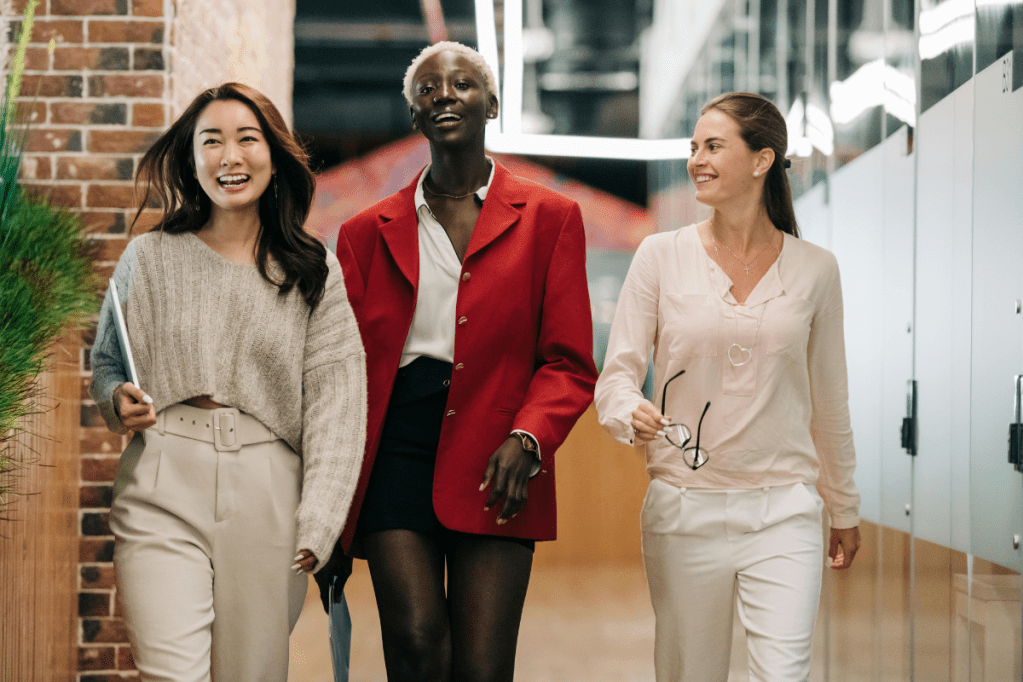
I want to nurture the kind of trust in myself that fosters self-belief. Why? Because that kind of confidence plays such a crucial role in everything, from how we handle life’s setbacks to how we set about achieving our goals. We need more of it as we age, not less. And I’m convinced that reaching midlife means we’ve absolutely earned the right to feel confident in who we are and what we bring to the table. One of the things that makes us shrink back from cultivating confidence, I think, is the misconception that being confident means loving the limelight.
‘You can be confident and extrovert or enjoy being the centre of attention, but you can also be quiet, introverted and not enjoy the spotlight – whilst also being highly attuned to yourself and having total trust in yourself,’ says psychologist Nova Cobban. ‘Bear in mind that we don’t tend to lack confidence full stop; it appears in different parts of our lives at different times, so the problem (if you lack confidence) is not that you are not a confident person or that you are not capable of trusting yourself, it’s just that something has occurred that has thrown your self-trust into doubt.’
There are lots of reasons why we might lack confidence, and pinpointing them can be a helpful process for anyone keen to grow their confidence. For Cobban, recognising why her confidence was low helped equip her with the skills to rebuild it: ‘My confidence was very low when I was younger,’ she says. ‘I became extremely anxious in situations where I felt I didn’t belong in the room. My imposter syndrome was overwhelming. I didn’t dive in with “becoming confident” as my first step.
My first step was building my resilience towards the fear I felt. I realised that although the feeling of anxiety and discomfort was hard to bear, I had been in many situations throughout my life where this was exactly how I always felt in the beginning (starting school, starting a job, driving a car, meeting new people, etc.) but, at some point, that fear always gave way to comfort and quiet and connection. Therefore, there was no reason why this new experience would be any different.’
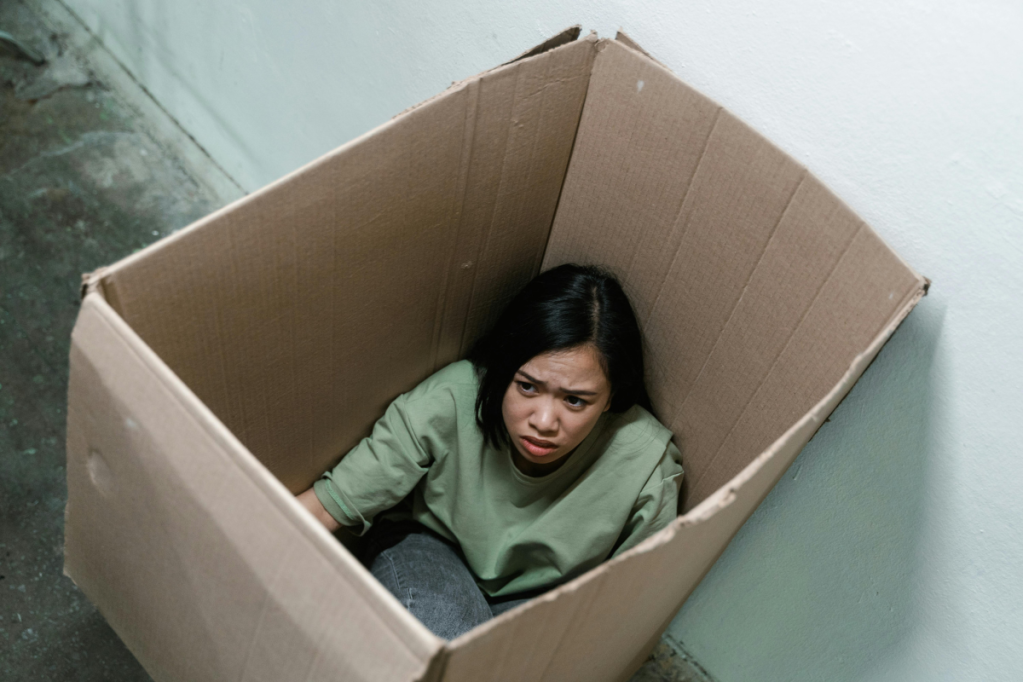
Slowly, Cobban went from ‘shaking at networking events so badly’ that she couldn’t hold a cup of tea, to doing talks in front of hundreds of people. Like Cobban, I want to keep cultivating confidence as I grow older instead of accepting that it wanes beyond youth.
More than that, I refuse to become someone who won’t travel anywhere unfamiliar or who allows a lack of trust in themselves to dissuade them from having adventures and taking risks. Instead of fading into midlife with a diminishing sense of confidence, I intend to maximise my freedom as my kids grow up, by saying yes to things that require me to keep exhibiting great trust in myself.
Ultimately, I hope I am never called upon to land a plane in an emergency. But I very much hope to foster such trust in myself that I would pause, if asked, and consider myself capable for at least a fleeting moment.
There aren’t that many moments in life that we’ll remember forever; possibly only a handful. But I recently experienced one of those rare snapshots in time, and I replay the moment often, just to savor its joy. Cycling back to our Airbnb in Amsterdam with one of my oldest friends, we took a wrong turn and suddenly found ourselves off the main road, sailing through the Vondelpark at dusk.
A peal of laughter rang through the balmy air, and I turned to see a silhouetted group of people wearing party hats, sitting in a circle on the grass, plastic glasses raised in a toast. As I looked back towards the path, I saw a sea of bicycle lights dancing before me in the darkness, like fireflies. In that second, momentarily lost in Amsterdam, I felt an indescribably rich sense of freedom and faith in myself.
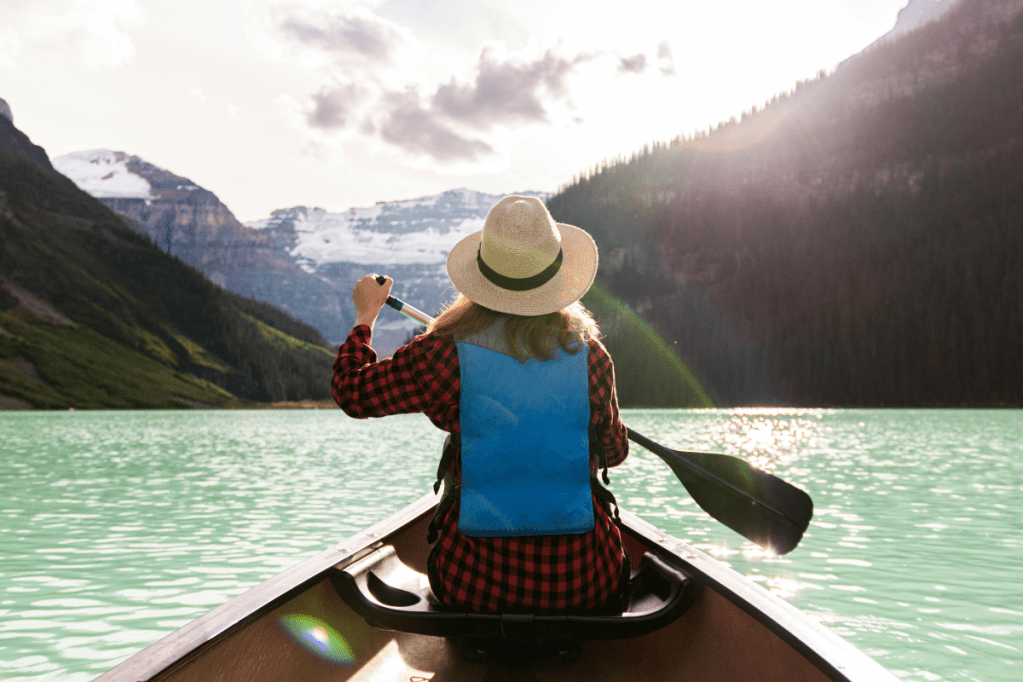
Confidence is built by… saying yes to risk and adventure. In fact, that whole trip was an exercise in cultivating quiet confidence. It began when my friend texted to ask if I’d like to go with her to hear Elizabeth Gilbert, whose book Big Magic (Bloomsbury, £10.99), is one of my all-time favorite reads, deliver a talk.
‘In London? I’ll fly over if I can stay with you…’ I replied, since the Irish Sea separates us. ‘I was thinking we could go to Amsterdam, actually,’ she replied. ‘Meet you there?’ And that, dear reader, is how I ended up abandoning all my responsibilities to spend three nights drinking wine on the deck of a houseboat in Amsterdam by night and cycling around the city by day, with a friend I first met at university almost 30 years ago.
It turned out she had been joking, but I had looked up flights before she’d had the heart to tell me. It’s also thanks to her and the confidence she carries that we decided to hire bikes and cycle around the city. I wanted to bail on the idea and take the tram, but hadn’t plucked up the courage to tell her before we were traversing the tow path to find our cycling legs.
What, exactly, has this got to do with confidence? Well, I said yes to that invitation to adventure – both the trip itself and the bicycle hire – because I’d become acutely aware via various personal relationships of how easy it is to find yourself suddenly lacking confidence in later life; how quickly your world can shrink and your confidence diminish if you don’t keep trying new things and stepping out of your comfort zone in midlife and beyond.
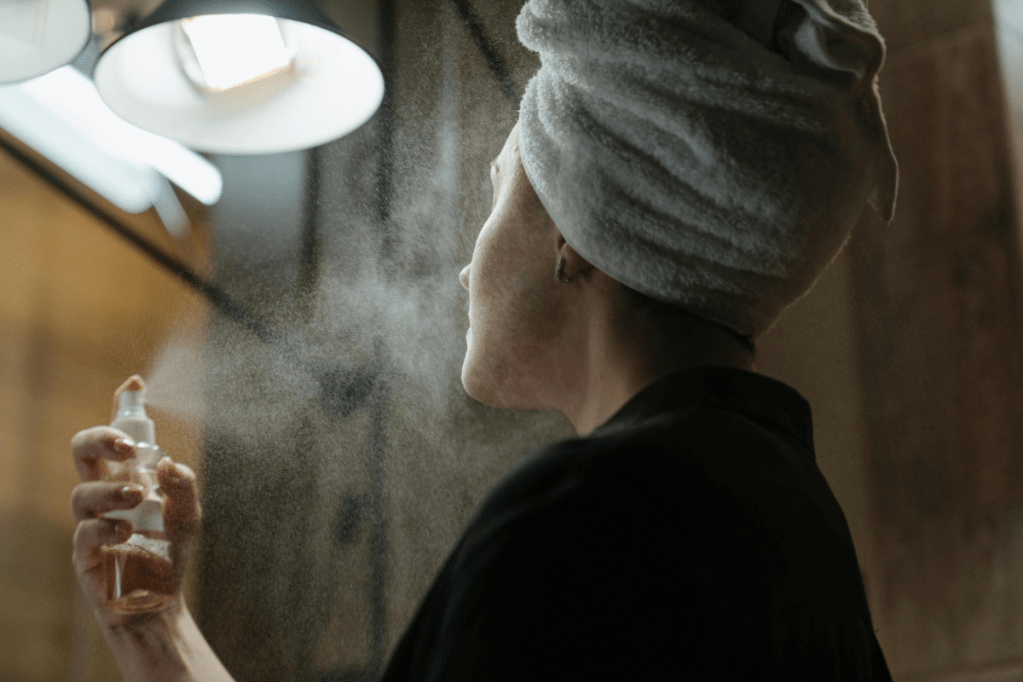
Confidence is built by… taking care of ourselves. We understand the importance of taking supplements and nurturing our health as we grow older, so why don’t we approach confidence with the same proactivity? After all, it seems so much harder to get your confidence back when it ebbs away, compared to nurturing and sustaining it.
I’d rather do the work now to maintain confidence in later life, in much the same way that I take vitamins or maintain my hormonal health with HRT. I’ve often reflected on what I’d have missed out on if I hadn’t said yes to cycling through Amsterdam. What if I’d insisted, as fear encouraged me to do, on taking the tram instead. I might still have had an amazing trip, but that moment in the Vondelpark deposited something in my soul that has deepened my faith in myself. I still feel its force several weeks later.

Confidence is built by… taking action. This reminds me of something Nova Cobban shared with me about how to cultivate confidence. ‘What people tend to do when wanting to improve confidence in an area of their lives is wait until a time when they feel confident enough to do the thing that they are holding back on, whether that’s entering the dating scene after a breakup, speaking up about something that’s been bothering them, or doing a presentation at work,’ she says.
‘But when you take steps towards doing the thing that is scary and your mind sees that you are okay, confidence is built as a direct consequence of taking the action and the proof that it creates for your mind. This puts you back in the driving seat, too – you have leverage over your ability to increase your confidence.’
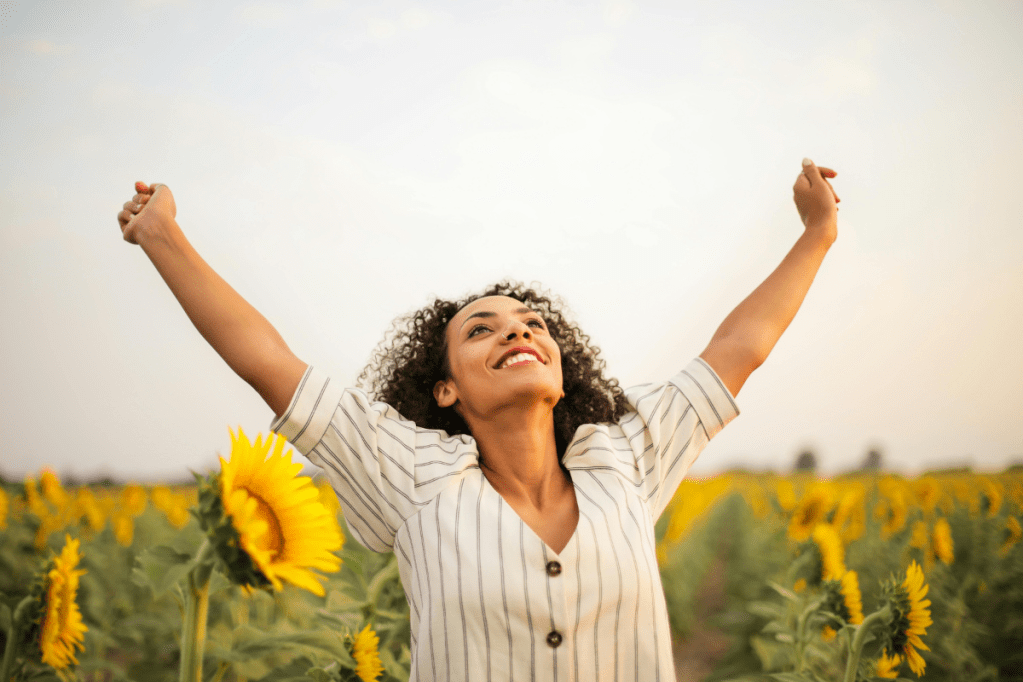
Confidence is built by… seeking proof. If you want to boost your confidence, it can help to recognize that confidence is simply having trust in yourself. Feeling low in confidence, therefore, is equally simple: it’s a lack of trust in yourself. ‘It might look different in the various arenas of our lives, but it still comes back to self-trust,’ agrees Cobban. ‘The reasons we have a lack of trust in ourselves can be very different of course. We have different emotional connections depending on the experiences we have had in each of the areas of our lives.
In your relationships, it might be that you find it hard to trust yourself to make the right decisions about appropriate boundaries, or to trust yourself to fall in love, or to trust yourself to overcome challenges you may face in relationships.’ If you want to build your confidence, one of the most helpful things you can do is look for evidence that you can trust yourself. You don’t necessarily need proof that you can perform the specific task or deal with the exact scenario that you feel unconfident about – remember that action usually comes before confidence.
You just need proof that you can trust yourself to have a go. If it helps, start with something small where the stakes don’t feel too high. ‘Look for proof, not external validation, and look for it in safe places, where no one else needs to know whether it went to plan or not,’ adds Cobban. Here’s an example of that. After the pandemic, I found I felt nervous about flying anywhere alone despite it being something I had done often before. I made a conscious decision to keep making trips to London in order to build up my confidence gradually.
They were trips I didn’t have to go on but, by pushing myself to do so, I was proving to myself that I could still handle it. More importantly, I was building my evidence that I had nothing to fear. If I hadn’t done that, I am sure the fear would have grown until the point where it had taken over. I wouldn’t have had the confidence to take that trip to Amsterdam, never mind exploring the city by bike.
That moment in the Vondelpark was a sweet payoff for my choice to get on a bike as an inexperienced cyclist in an unfamiliar city, where the traffic is fast and other cyclists are unforgiving. As I took that action, allowing my feet to leave safe ground and take to the pedals, I was creating proof for myself that I am far braver than I seem and more capable than I feel.
Having already proven to myself that I can fly alone to another country, I had demonstrated that I could trust myself to navigate its capital on two wheels – despite my fear that I might fall off or get lost or get knocked down by a car. In a way, I’d built the case for myself, supplying my mind with evidence that I can trust myself to do things that scare me and to cope with any potential setbacks.
Create those conditions for yourself and confidence simply cannot do anything but bloom in that scenario.
Find Heidi on Instagram at instagram.com/heidiscrim
